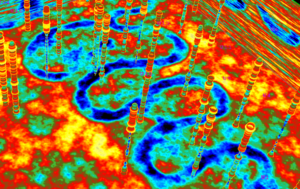4-6 March 2024
Event phone:
Event Information & Registration
Event Information
This event will be delivered online.
???? Dates: 4 | 5 | 6 March 2024 (3 x 2hr sessions)
???? Time: 14:00-16:00 (UK time) per session
Registration
Please read our Registration Terms and Conditions before completing your purchase.
If you are interested in becoming a member of GESGB please visit: https://www.ges-gb.org.uk/membership/
Course Description
GESGB Training Partner Programme (online) – Rock Physics-based Machine Learning: The Next Frontier in Reservoir Property Prediction
Facilitator: Kirill Siraev, Geophysicist at GeoSoftware

Course overview
This course covers all aspects of the use of deep neural networks (DNNs) to predict elastic and rock properties, as well as an overview of relevant machine learning theory. In these supervised learning workflows, the relationship mapping the seismic to the properties of interest are learned from the data itself. Key to deriving robust operators is big data. This technique allows to generate and incorporate synthetic data in the machine learning workflow using Convolutional Neural Networks to get more reliable estimates.
Content
This novel technology for seismic subsurface characterization uses Rock Physics theory and statistical simulations to model various geological scenarios. Train Convolutional neural networks (CNNs) on the simulated synthetic data and transfer learning to real seismic, estimating multiple rock property volumes in a simplified machine learning approach.
Topics covered include:
- Supervised learning, multi-linear regression, and deep neural networks.
- Introduction to deep neural networks (DNNs) and the need for big datasets.
- Creating big data by generating synthetic well and seismic data.
- Examples showing how the inclusion of synthetic data improves the property estimates.
- Lithofacies Classification, Rock Physics Modelling, Statistics, Variogram modelling, Well Simulations.
- Generating synthetic seismic data using AVO modelling.
- Seismic data preparation including correlation, generation of angle gathers and scaling.
- Convolutional neural networks, benefits, and practical application.
- Quality control of the results.
Facilitator Biography
Facilitator: Kirill Siraev, Geophysicist at GeoSoftware
Kirill Siraev works as a geophysicist for the GeoSoftware, with a solid background at the company and a history of working in various regions. Kirill holds a master’s degree in Exploration Geophysics, and he is presently responsible for technical support and project services.
Venue Information
Venue information
Venue name:
Online
Venue address:
This event will be delivered online.


